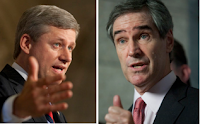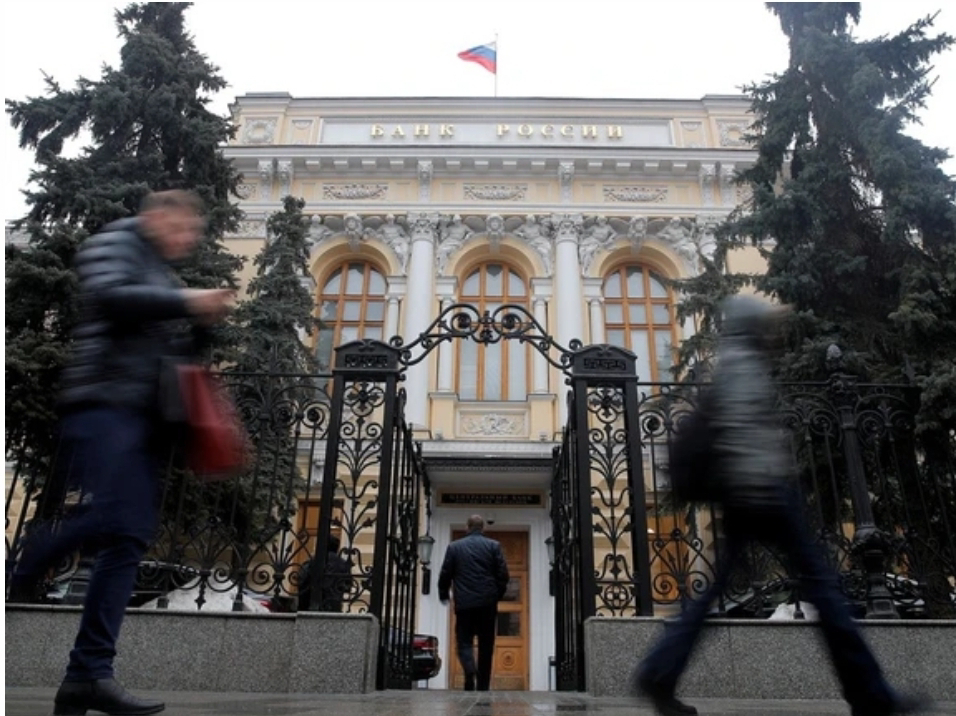Harper, Ignatieff reach deal to avert summer election.
OTTAWA - Prime Minister Stephen Harper and Liberal Leader Michael Ignatieff ended their political brinkmanship Wednesday with a deal to avoid an election - at least until the fall. The centrepiece of the agreement is a six-member working group that will examine possible changes to Employment Insurance. Those changes include a Conservative proposal to extend EI coverage to the self-employed, and a Liberal push to make the eligibility threshold the same across the country. The group will have to report back to Parliament by Sept. 28. The minority Conservative government will also be compelled to produce another economic report card to the House of Commons that week. And Harper agreed to give the Liberals an opposition day motion within eight days of the start of the fall session of Parliament - a key opportunity to trigger an election. In exchange, Ignatieff will not vote against the government Friday when the supplementary budget estimates come up in the Commons. The NDP and Bloc Quebecois have said they will vote against the government. Both men hailed the agreement as a good day for parliamentary co-operation. "The good news we have today for people is that the breakthrough we actually have is a willingness of the government and the Official Opposition to work together on an important public policy matter," Harper said. "I think it's always preferable that parties work together in these difficult times and that's what Canadians want." Ignatieff said he simply did his job by holding the government to account. "We have found a way to make progress for Canadians on EI and we've found a way to make this government accountable and I feel that this is a good day for our country. But more importantly, it's a good day also for this system of Parliament." Ignatieff noted that he will re-evaluate the government after the EI panel recommendations and the economic progress report and decide whether to keep supporting the government. Harper said his opposition to a Liberal proposal for a 360-hour EI eligibility standard across the country has not changed. But he said there is a possibility of reaching compromise. He agreed that the current system of 58 regional eligibility areas doesn't seem to make sense. Under the EI deal, each side will be able to select three people for the panel. Ignatieff said he will appoint MPs Michael Savage and Marlene Jennings, along with Kevin Chan, his head of policy. Chan was a former senior bureaucrat with the Privy Council under the Harper government. In an internal memo circulated within Tory ranks, the Prime Minister's Office appeared to be claiming victory over Ignatieff. "The Liberals have reversed themselves on EI reform (their 360-hour demand has been abandoned) and withdrawn the threat to force an unnecessary summer election," the memo said. "Instead, the Liberals will vote for the next round of stimulus in our Economic Action Plan." The agreement was reached after two face-to-face meetings Tuesday and a phone chat Wednesday morning. The unusual discussions between Ignatieff and Harper kicked off after Ignatieff demanded answers to a series of key economic questions. The main question was what Harper intended to do to improve EI. Ignatieff also demanded to know how much stimulus money has been spent, and what the government plans to do about the ballooning deficit and the medical isotope crisis. One Liberal cautioned that although the EI working group will make its recommendations, the party doesn't necessarily have to agree with either the findings or the action Harper takes following the report. All parties will spend the summer months gathering support and money before an election that many insiders believe will happen this fall.


Komentar